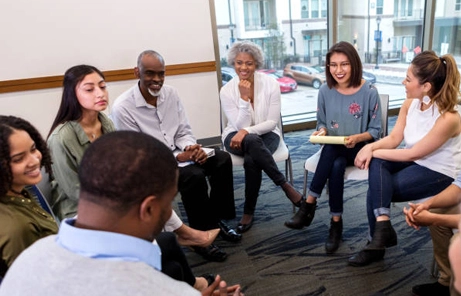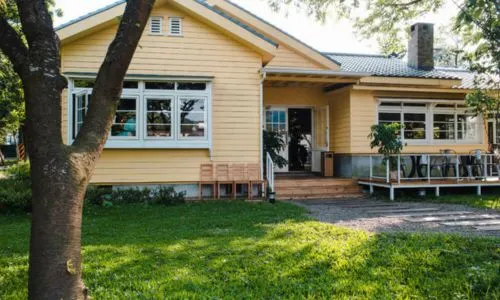If you or someone you love is struggling with drug addiction or alcohol addiction, it may seem like everything is hopeless and you’re not sure where to begin. Through proven rehabilitation therapies, drug addiction & alcoholism can be treated for long-term abstinence.
Learn about how addiction recovery can be achieved if you or a loved one can apply an holistic addiction treatment approach.
What is Addiction Rehab (Rehabilitation)?
Addiction ‘rehab’ is a broad term that includes the therapeutic and medical treatments that are used to help people recover from their dependencies on illegal & legal substances. Rehab treatments are valuable when they are personalized to your specific needs, and may encompass inpatient programs, outpatient programs, medical detoxes and aftercare support programs.

Facts & Statistics about Addiction in Vacaville
Prevalence of Substance Use Disorder, by Drug Type
(IN THOUSANDS)
- 2,7578.5%Any Substance
- 2,0886.4%Alcohol
- 1,0683.3%Ilicit Drugs
- 2060.6%Pain Medication
Drug- and Alcohol-Induced Deaths by Age Group, California, 2016
- Alcohol-Induced
- Drug-Induced
- 18 to 250.5
- 9.6
- 26 to 354.3
- 13.9
- 36 to 6424.2
- 22.9
- 65+23.7
- 9.4
Drug Use, by Selected Type and Age Group California, 2015 to 2016
- 12 to 17
- 18 to 25
- 26+
- Marijuana*13.2%
- 34.0%
- 13.5%
- Misuse of Pain Medications3.5%
- 8.0%
- 4.3%
- Cocaine0.8%
- 7.2%
- 1.8%
- Heroin0%
- 0.4%
- 0.2%
What are the treatment options available in Vacaville?
Identifying and healing the root causes behind your drug or alcohol addiction can be achieved through an integrated treatment model. It is vital to treat the symptoms of addiction, but coping strategies need to be learnt, in order for you to deal with the issues that lead to the substance dependency.

Private Residential Programs
When you stay within the center where you are receiving your treatments, you are in a residential addiction treatment program.
Its primary benefit is that you can receive holistic treatment and support throughout the day. By moving out of your comfort zone and into a rehab facility, you can protect yourself from any obvious triggers that are partly responsible for you developing a substance use disorder.
You can complete your rehab program and avoid relapse more easily when you stay in a secure facility which is protective and supportive. Residential treatment programs are useful for those with intense drug and alcohol dependencies, co-occurring disorders or dual diagnosis. An inpatient treatment program will help you in getting sober, but it’s important to note that maintaining sobriety will require ongoing effort as the early stages of recovery are usually difficult. Finishing your residential treatment program is the start of your newfound independence and you will be focused on setting goals for your substance-free future.
Do You Need Help?
Let us help you start your recovery journey today.

Sober Living Programs
A sober living program will encourage you with important skills you need, through guidance and support. You can look forward to:
- Daily guidance from the house manager
- Developing guidelines to help your behavior in recovery
- Helping you to build positive relationships with peers who are going through similar experiences to you
Outpatient Programs
By engaging in an outpatient program you have a lot more flexibility, as you will visit the rehab facility for treatment weekly and maintain work or family commitments.
Outpatient programs typically provide you with:
- Education on the abuse of substances
- Group therapy and individual sessions as vehicles for addiction recovery – You must be enrolled in an outpatient program for a minimum of three months, and may remain in it for longer than a year if required.
Detox Only Programs
With the help of a medical detox you can rid substances from your body safely and put an end to to physical dependence. Withdrawal symptoms typically appear during the detox phase and your body begins to stabilize without substances it was dependent on.
This is only the start of your rehab process, and the next steps work to tackle and manage the underlying causes of your addiction, so that those same issues do not continue. It is normal to develop withdrawal and cravings for a period of time after the substance has been eliminated from your system. Rehab teaches you life-changing skills that are designed so that you protect yourself from relapse.
Paying for Private Treatment
If you want to continue with private rehab, you will need to cover the costs or make a claim via your healthcare policy. In most instances, insurance companies will cover the costs of rehab, to some extent, including a medically assisted detox, rehab program, and aftercare programs. The amount you are eligible for will be determined by your provider and your policy details. It is good practice to inquire about your cover prior to enrolling in a rehab program.
Our Verify Your Insurance page will help you to determine the amount of cover you are eligible for. If you prefer not to claim against your insurance policy, you will need to pay for your rehab directly. Some rehab facilities can offer payment plans to individuals who can’t afford to pay the full amount.
State Funded Programs
State-funded rehabilitation programs have been designed to support people who do not have the financial means to tackle alcohol or substance dependence. Using stipends from a combination of state, federal and Medicaid budgets, these types of rehab programs can remove financial barriers to rehab by providing:
- Medically-assisted alcohol/drug detox
- Addiction Rehabilitation and aftercare services.
State-funded treatment programs are accessible to those who do not have private health insurance or who live in poorer areas. When applying you will need to show:

- Proof of your financial situation
- Proof of residence
- Your personal medical records regarding your substance misuse
- Proof you are living in the US legally
Extensive details about the application process can be found here. You can also locate direct contact details for your state agency by clicking here.
The following state-funded addiction rehab programs are available in Vacaville:
Center Point Inc Center Point Napa
2100 Napa Vallejo Highway, Building 253, Napa, CA 94558
415-492-4444
www.cpinc.orgNapa County Health and Human Services South Campus/Alcohol and Drug
2751 Napa Valley Corporate Drive, Building A, Napa, CA 94558
707-253-4063
www.countyofnapa.org/
Maintaining Addiction Recovery in Vacaville
You may undergo some initial challenges when first leaving treatment. The rehab environment was controlled and safe, and you were given professional support. Once you leave rehab there may be new triggers that put your coping skills to the test. If you experienced a severe dependency and have not developed a social structure to return to when you leave rehab, you may find long term recovery more of a challenge. Relapse can happen if you don’t have the appropriate aftercare or support to guide you into your new future.
The following AA/NA meetings are available in Vacaville:
CALIFORNIA STATE PRISON – SOLANO
Alive Inside Group Restricted Access, Discussion/Participation and Open:
2100 Peabody Road, Vacaville, CA, 95687
Tuesday: 7:30 pm
https://www.drugstrategies.org/AA - Afternooners
12 Steps and 12 Traditions, Discussion, Open and Big Book:
106 Peabody Road, Vacaville, CA, 95687
Sunday: 12:30 pm – 1:30 pm
https://alcoholicsanonymous.com/AA - 11th Step Prayer and Meditation Vacaville
11th Step Meditation, Meditation and Open:
106 Peabody Road, Vacaville, CA, 95687
Monday: 6:30 pm – 7:30 pm
https://alcoholicsanonymous.com/
Aftercare & Alumni Programs
Aftercare programs extend your rehab program once you return to your daily life. Because relapse rates can be as high as 60%, and because life can be stressful, aftercare support is an important service to support your recovery long-term. As you get near to completing your treatment program, we will collaborate with you to develop an aftercare package that includes a range of services that are helpful to your long-term recovery.
One of the benefits of finishing rehab is entering an alumni community program, where you will be able to liaise with peers and staff as part of a community. Via this network you will be able to attend fun events and receive encouragement and advice from other members who are in long-term sobriety. We encourage you to consider offering support to other ex-clients in your network if you feel able to.
Support Groups (Fellowship Meetings)

Support groups encourage long-term recovery because they understand the paramount role that social structures play in maintaining addiction recovery. The 12-steps are is maintained by support groups like Alcoholics Anonymous (AA) and Narcotics Anonymous (NA) which have continued helping individuals in recovery by providing regular meetings. When you attend support group meetings, you will be able to share your experiences and listen to other individuals who are also in recovery. Many people in recovery attend nearby meetings to help them in the early and later stages of addiction recovery. Support groups provide them with the necessary tools tools to maintain sobriety, allowing them to take responsibility for their actions to themselves and others.
Support for Families & Children Affected by Addiction
Addiction impacts on everyone living in the family unit to some extent. Although the person who has addiction issues certainly needs support and guidance, other family members also need support.
Family support groups teach you and your loved ones important coping tools for your own life and allow you to offer more support to the individual who has the issues with substance dependence. Get help and guidance for the Family with the below support groups:
- Parents of Addicted Loved Ones
- SMART Recovery Family & Friends
- NAMI Family Support Groups
- Al-Anon
- Families Anonymous
- Alateen
- Nar-Anon










